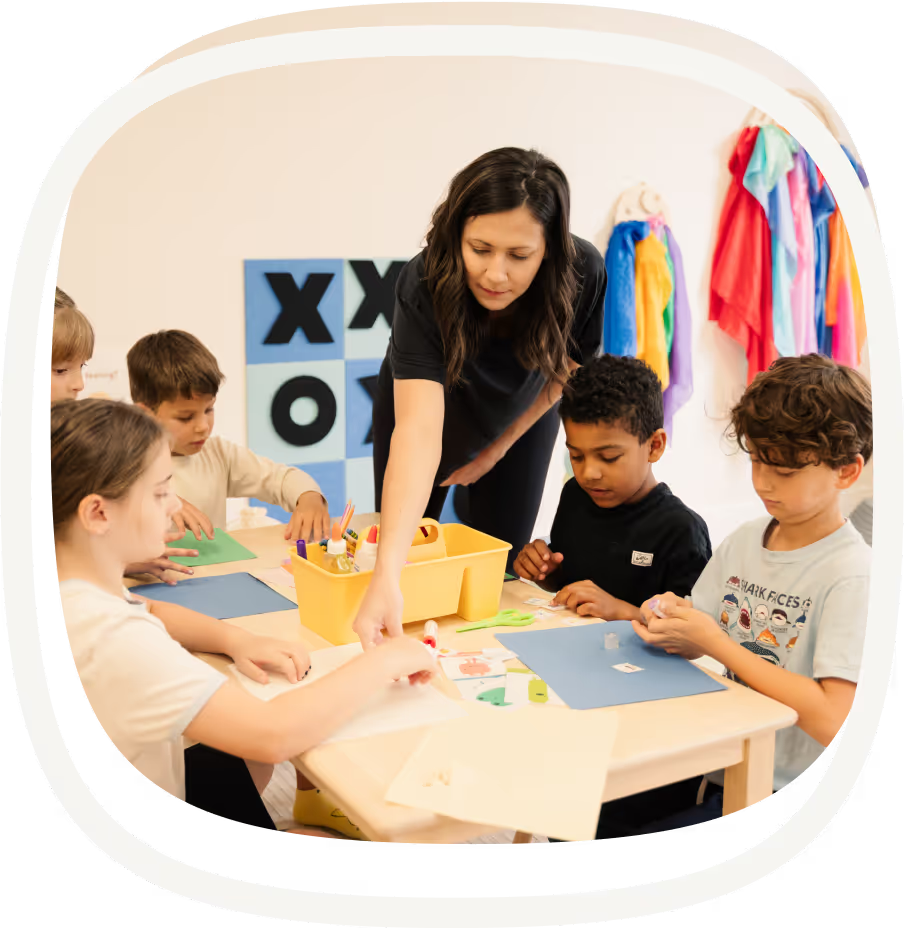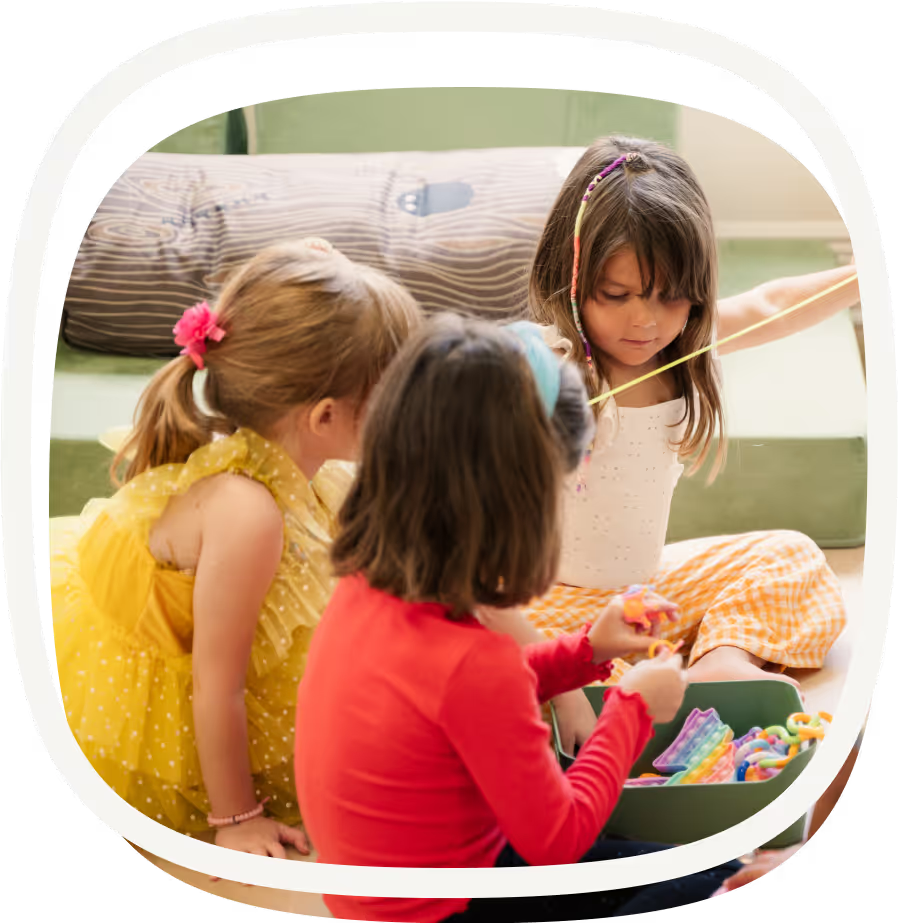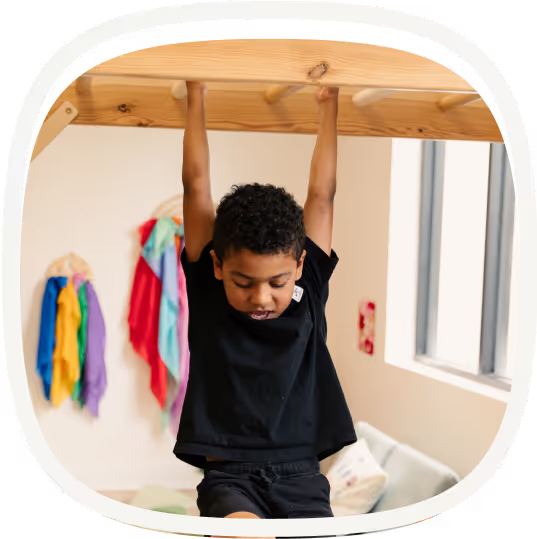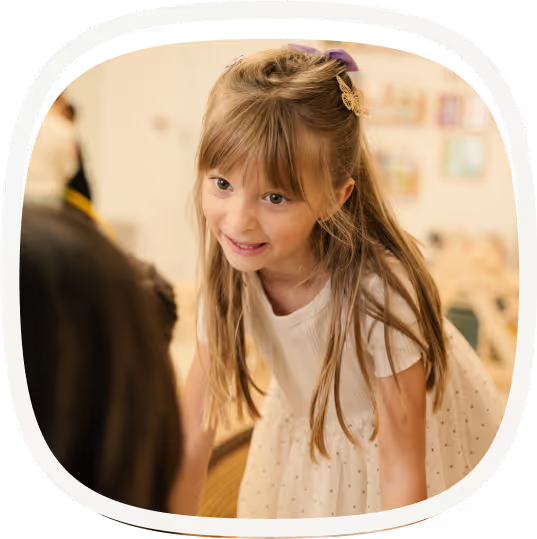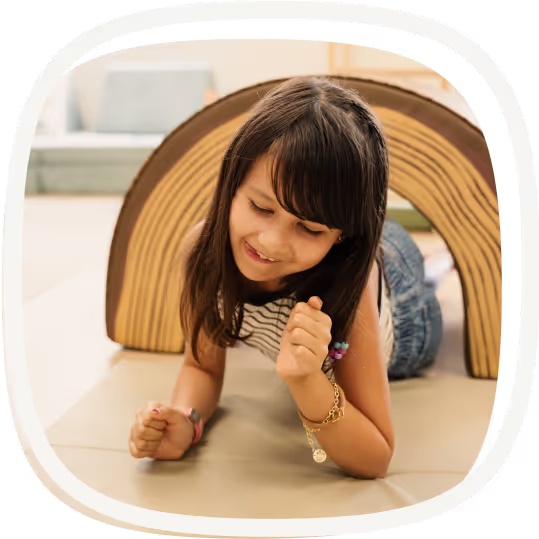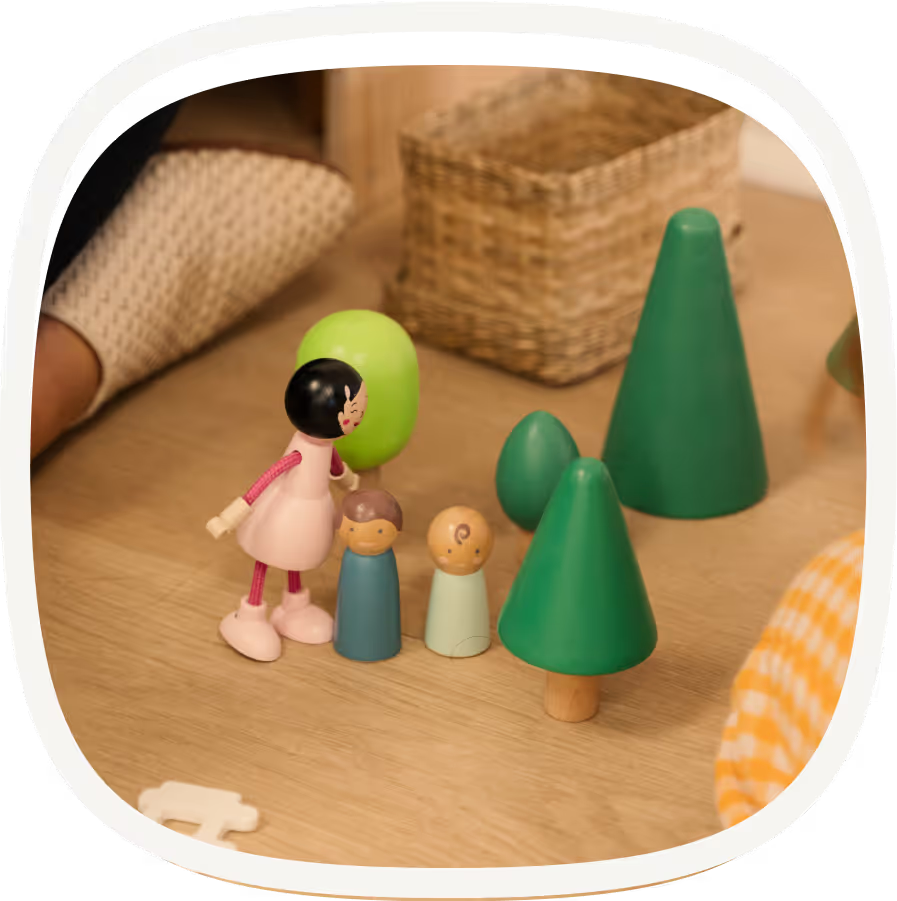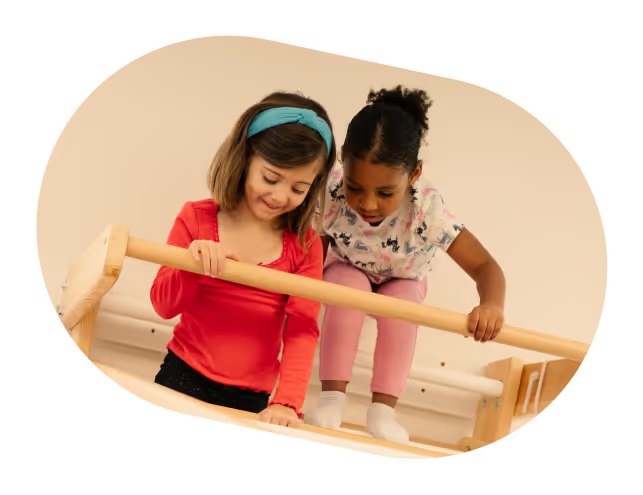Peace for Kids offerings
We aim to create a playful and supportive environment for all kids and their families.

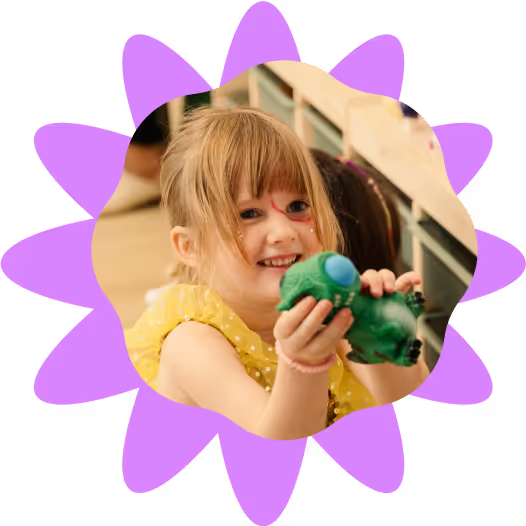


We are dedicated to fostering a culture of acceptance where every neurotype is valued and celebrated. Designed with emotional, sensory and social needs in mind, our therapy groups are built around exploring friendships, problem solving during conflicts, and learning about and honoring emotional and sensory regulation needs. We talk openly about diversity and how that makes the world a beautiful place.
Weekly CLub for ages 4–13
Peace for Kids Clubs
Peace for Kids provides a safe and affirming space for all children ages 4–13 to unwind, connect with similarly-aged kids, and explore their interests together.
Children are supported through activities tailored to their special interests, provided with gentle opportunities for connection, and given plenty of space for unmasking, decompressing, and co-regulation after the school day.
Our environment is intentionally structured to foster safety and belonging and offers children the opportunities to practice (with support) what they may be learning at home, school, and in 1:1 therapeutic environments
What to expect in Peace for Kids Clubs:
- Weekly 50-minute, in-person connections with group of up to 5 similarly-aged kids
- Led by a neurodiversity-affirming behavior specialist
- Inspired and informed by ACT (Acceptance and Commitment Therapy) principles
- Monthly newsletter updates, so you can stay informed on what your children are learning

Social-emotional learning clubs for toddlers
Mindful Littles
We give parents and their littles a set time each week and a safe space to learn skills like identifying feelings, practicing empathy, and building early friendship skills—all through play, stories, music, and movement.
We also offer support, share tips/encouragement for staying regulated yourself, and provide a place for community to take root for the grown ups too.
What to expect in Mindful Littles:
2 year olds
- Age-appropriate social-emotional learning activities—Slumberkins
- Weekly 30-minute, in person meeting with group of up to 5 kids
- Caregivers must attend with child
3 year olds
- Age-appropriate social emotional learning activities—Slumberkins
- Weekly 30-minute or 50-minute (parents can choose), in-person meeting with group of up to 5 kids
- Caregivers must attend the first 30 mins, the last 20 minutes of free play are optional, and parents can have a break downstairs in the cafe


Our highest priority in any of our therapies is supporting each child and family in living a life that reflects their own values and unique strengths. Guided by evidence-based practices and the ethical standards of our respective fields, we are proud that our work is both compassionate and grounded in research.
1:1 Therapy
Occupational Therapy
What We Work On Together
- Fine motor skills: Grasping, writing, buttoning, using utensils, cutting with scissors
- Gross motor skills: Balance, coordination, strength, core stability, and posture
- Hand-eye coordination: Catching a ball, copying from the board, drawing shapes
- Sensory processing skills: Managing responses to sights, sounds, textures, and movement
- Self-regulation skills: Developing coping strategies, calming techniques, managing frustration
- Daily living skills: Dressing, feeding, toileting, grooming, organizing belongings
- Play skills: Taking turns, imaginative play, problem-solving during play
- Social participation skills: Sharing with others, communicating needs, joining group activities
- Executive functioning skills: Planning, sequencing, attention, memory, flexible thinking
- Visual-motor and visual-perceptual skills: Puzzle completion, reading readiness, spatial awareness

1:1 Therapy
Speech Therapy
Our licensed bilingual Speech-Language Pathologist (SLP) specializes in supporting speech, language, and social skills from early childhood through the school-age years.
What We Work On Together
- Speech sounds (articulation/phonology): Helping kids pronounce sounds and words clearly.
- Language development: Building vocabulary, grammar, and sentence structure.
- Social communication (pragmatics): Teaching turn-taking, conversation skills, and understanding social cues.
- Early communication skills: Supporting gestures, pointing, babbling, and first words.
- Receptive language: Understanding words, instructions, and stories.
- Expressive language: Using words, phrases, and sentences to communicate wants, needs, and ideas.
- Stuttering/fluency: Supporting smoother speech and strategies to reduce disruptions in flow.
- Voice: Addressing concerns like hoarseness, pitch, or volume control.
- Feeding and swallowing (pediatric dysphagia): Helping with safe eating, chewing, and drinking.
- Oral-motor skills: Strengthening muscles used for speech and feeding.
- Augmentative & Alternative Communication (AAC): Supporting communication through devices, picture systems, or sign language when speech is limited.
- Literacy skills: Early reading, phonological awareness, and comprehension support.
- Cognitive-communication skills: Supporting memory, attention, problem-solving, and organization in communication.
- Play and interaction skills: Encouraging back-and-forth play, joint attention, and shared enjoyment.

1:1 Applied Behavior Analysis
Child-Led ABA
A Different Approach
Unlike traditional ABA, which often relies on compliance and adult-directed teaching, child-led ABA follows the child’s natural interests and honors their autonomy. Children are active partners in planning their own support, and their voices help shape the goals we set together. Every plan is personalized to reflect the values, priorities, and needs of both the child and their family.
Rooted in ACT & the DNA-V Model
At Peace for Kids, we integrate principles from Acceptance and Commitment Therapy (ACT) and the DNA-V model (Discoverer, Noticer, Advisor, Values). These approaches help children and families clarify what matters most and build flexible, values-driven skills that support long-term well-being.
What We Work On Together
Through this lens, ABA therapists can support children in:
- Emotional Awareness & Regulation: Noticing feelings in their body and learning strategies for co-regulation.
- Mindfulness & Self-Reflection: Pausing to notice thoughts, sensations, and the present moment.
- Problem-Solving & Flexibility: Experimenting with new approaches, learning from mistakes, and building resilience.
- Social Connection: Practicing communication, perspective-taking, and relationship-building.
- Values Exploration: Identifying what matters most (e.g., kindness, curiosity, fun) and using values to guide choices.
- Confidence & Identity: Fostering self-awareness, acceptance, and pride in who they are.
Individualized Support
Because every child’s journey is unique, our sessions are highly individualized. Therapists follow the child’s lead, build authentic connections, observe with curiosity, model skills that align with the child’s values, join and expand play, introduce language suited to their developmental stage and processing style, and co-regulate alongside them.


Our highest priority in any of our therapies is supporting each child and family in living a life that reflects their own values and unique strengths. Guided by evidence-based practices and the ethical standards of our respective fields, we are proud that our work is both compassionate and grounded in research.
Monthly Parent support group
Peace for Parents
Our monthly parent support group is a space designed for parents and caregivers navigating the challenges of raising children with big emotions, anxiety, or behavioral differences—with or without a diagnosis.
Guided by compassionate facilitators, parents can celebrate strengths, process and vent with other safe people who “get it,” and build a supportive community where every family feels understood and valued.

Parenting Consultation
Individual Consultation Calls
We offer consulting calls for new families as well as current Peace for Kids families. These can be scheduled as needed, or on a weekly or monthly basis, depending on your preferences. Most consultations are held through Telehealth, with in-person options available when helpful.
During these calls, we partner with caregivers to provide extra support in day-to-day parenting, reinforce therapy goals at home, discuss your child’s progress, and share practical strategies for navigating the diagnostic process, therapeutic services, the school system, homeschooling, unschooling, and more. Our approach is always collaborative, with caregivers at the heart of the conversation.





